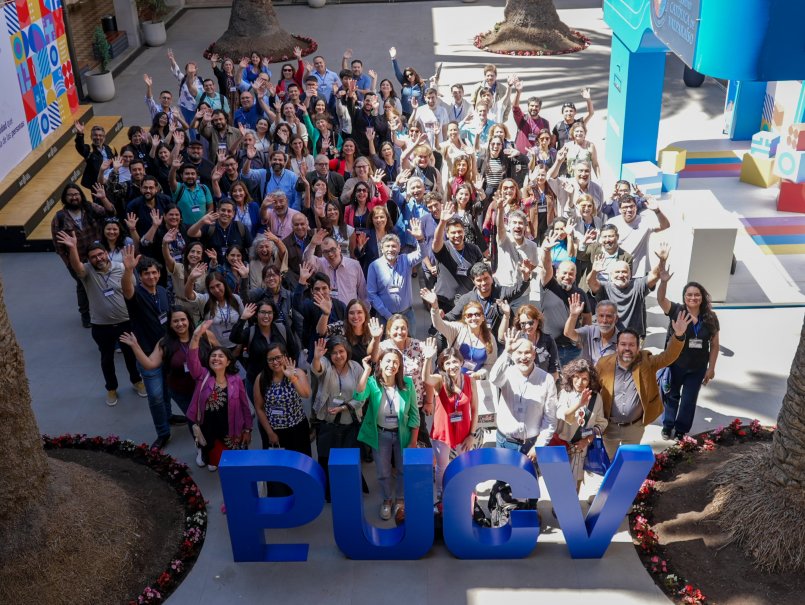
Through an active academic diplomacy policy, institutional tours and the consolidation of global alliances, the PUCV has strengthened its presence in the international higher education system, opening new opportunities for their students, faculty and strategic partners. In this sense, during the 2024-2025 period, the efforts to consolidate and expand its international academic cooperation networks have intensified.
In this period, the General Director of International Affairs (DGAI, for its name in spanish) has led 26 in-person visits to academic institutions in Europe, Oceania, North America and Latin America. Among the outstanding universities we can find Sapienza di Roma, University College Cork (Ireland), Queensland University of Technology (Australia), Pontificia Universidad Javierana (Colombia), Northern Illinois University (U.S), Pontificia Universidad Católica del Perú, and others.
These tours not only allow to strengthen agreements and explore double-degree and mobility programs, but also to place the PUCV as a reliable academic partner in areas such as postgraduate studies, research and intercultural education.
“The role of universities is essential, but nobody can do this alone. From this perspective, establishing alliances and connections with universities, the business and diplomatic world, is key to fulfill our mission of seeking, promoting and relating knowledge to society”, said Orlando de la Vega, Director of PUCV International Affairs.
Academic diplomacy
One of the distinctive features of this period has been the strengthening of academic diplomacy as a strategic tool. So far thirteen diplomatic meetings have taken place at the university Headquarters, with representatives from countries such as Ireland, Belgium, France, China, Mexico, Costa Rica, Germany and Honduras.
Likewise, there were nine international diplomatic meetings that took place in strategic countries such as Italy, Ireland, Australia, Perú, Colombia, Uruguay and Suriname. These encounters allowed to promote joint initiatives, visibilize the institutional work and articulate agreements that launch the university into the global level.
“Chile continues to be a leader in Latin America in human development, and the university must be an active part of this progress. Internationalization is a powerful tool to create knowledge, broaden perspectives and connect with the world”, De la Vega added.
During the same period, the PUCV has received 48 international representatives from universities and agencies coming from Europe, America, Asia, Africa and Oceania, creating academic encounters, seminars, institutional meetings and conferences.
Institutions such as King’s College London, University of Colorado Boulder, University of Münster, Tecnológico de Monterrey and Auckland University of Technology have been part of these visits, as well as delegates from organizations such as ISEP, API, ISA, FUNIBER, FIDBAN and Campus France.
These visits have contributed to diversify the academic and cultural ecosystem within the university, opening opportunities for internationalization without the need of physical mobility.
“To consolidate international networks is one of the great challenges that we have set for our university government. This is a task that directly contributes to the development of the country and the positioning of the PUCV as a relevant actor in global higher education”, the Director of the DGAI explained.
International activities with PUCV signature
The DGAI has also organized or co-organized 9 international activities in university campuses. Among them we can mention the Falling Walls Lab Chile, the Blue Talk along to the France and Costa Rica embassies, the Territorial Governance conference, the seminar on Women’s Month and the Latinale Sur cultural event, related to the DAAD.
These activities have consolidated the PUCV as a space for academic dialogue, international cooperation and cultural innovation.
Internationalization has also incorporated the private sector. The university has reinforced its relationship with binational cameras such as AHK, CANCHAM-Chile, AMCHAM-Chile and ICARE, developing collaboration initiatives between the academia business. In addition, the Misión project, which articulates strategic actions in priority regions, has been pushed forward, with institutional trips to Israel, the Caribbean, New Zealand, Australia, Germany, Africa and Honduras.
By Camila Rojas
Strategic Communications Department



